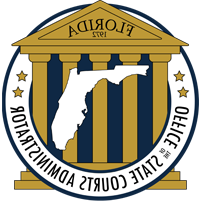About ADR & Mediation
Alternative dispute resolution (ADR) has been utilized by the Florida Court System to resolve disputes for over 30 years, starting with the creation of the first citizen dispute settlement (CDS) center in Dade County in 1975. ADR processes offer litigants court-connected opportunities to resolve their disputes without judicial intervention. In Florida, this has resulted in one of the most comprehensive court-connected mediation programs in the country. The Florida Dispute Resolution Center (DRC) was created during the mid 1980’s to provide assistance to the courts in developing ADR programs and to conduct education and research on ADR in general.
On January 1, 1988, comprehensive revisions to Chapter 44, Florida Statutes, entitled “Mediation Alternatives to Judicial Action,” were implemented. This 1987 legislation granted civil trial judges the statutory authority to refer cases to mediation or arbitration, subject to rules and procedures established by the Supreme Court of Florida. Since then, the statute has been revised several times and procedural rules, certification qualifications, ethical standards, grievance procedures, training standards, and continuing education requirements for mediators have been implemented.
The Florida State Court System consists of 20 judicial circuits that encompass Florida’s 67 counties. Prior to July 2004, ADR programs in Florida were funded by the counties. This resulted in great variations of ADR services across the state. Generally, single county circuits provided litigants with access to a wide variety of ADR programs; while in multi-county circuits, ADR services were offered in some, but not all of the counties; thereby leaving some counties with no services. In a constitutional amendment implemented on July 1, 2004, the funding for the state court system became the responsibility of the state. The goal was for litigants to have generally uniform access to “essential” services regardless of where they live in the state. Included among those “essential” services are court-connected mediation and arbitration.
The Supreme Court of Florida, through the DRC, offers certification for mediators in the areas of county court, family, circuit court, dependency and appellate cases. In most cases, parties select the mediator of their own choice. However, certified mediators may receive appointments from the court when the litigants are unable to select their own mediator. Certified mediators and those individuals who are not certified but who mediate court-ordered cases are bound by the ethical standards contained in the Florida Rules for Certified and Court-Appointed Mediators . Mediators renew their certification every two years and must complete 16 hours of continuing mediator education applicable to each area of certification. The Supreme Court does not certify arbitrators; however, court-appointed arbitrators are bound by the Florida Rules for Court-Appointed Arbitrators
. Mediators renew their certification every two years and must complete 16 hours of continuing mediator education applicable to each area of certification. The Supreme Court does not certify arbitrators; however, court-appointed arbitrators are bound by the Florida Rules for Court-Appointed Arbitrators .
.
As of February 2024, there were 5,674 individuals certified as mediators. The breakdown by certification is as follows:
- 2,023 certified county mediators
- 2,193 certified family mediators
- 3,399 certified circuit mediators
- 205 certified dependency mediators
- 420 certified appellate mediators
In an effort to keep pace with this rapidly evolving field, the Supreme Court of Florida has created five standing ADR Committees/Boards. All of the Committees/Boards are staffed by the DRC:
- The Florida Supreme Court Committee on Alternative Dispute Resolution Rules & Policy (ADR R&P) is charged with monitoring and making recommendations to improve and expand the use of court-connected ADR (not limited to mediation) through the recommendation of the adoption of statutes, rules, policies, and procedures;
- The Mediator Ethics Advisory Committee (MEAC) issues formal advisory ethics opinions to certified and court-appointed mediators. These opinions are posted on the DRC website for use by mediators as well as courts, attorneys and the general public;
- The Mediator Qualifications and Discipline Review Board (MQDRB) is responsible for hearing grievances filed against certified mediators for violations of the ethical standards and reviewing mediator good moral character issues;
- The Mediation Training Review Board (MTRB) reviews complaints against certified mediation training programs and training program principals;
- The Parenting Coordinator Review Board (PCRB) was appointed in 2016 to consider complaints against Qualified and Court-Appointed Parenting Coordinators. The twenty members include judges, attorneys and parenting coordinators from across the state.
In addition to the state court-ordered mediation and arbitration cases, there are a variety of other ADR programs operating successfully. Summary jury trials are utilized on an ad hoc basis in some circuits and the federal courts utilize both mediation and arbitration. There are numerous state ADR statutes and successful ADR programs through the Department of Insurance, the Division of Mobile Homes of the Department of Business and Professional Regulation, and the Workers Compensation Division of the Department of Labor and Employment Security, to name just a few.
Contact
For additional information please contact the Dispute Resolution Center at 850-921-2910 or at DRCMail@elahomecollection.com.
